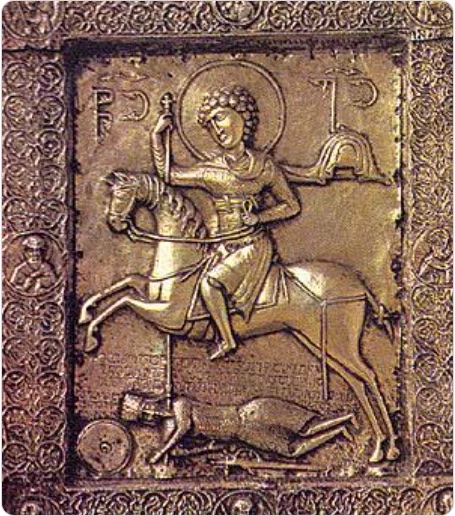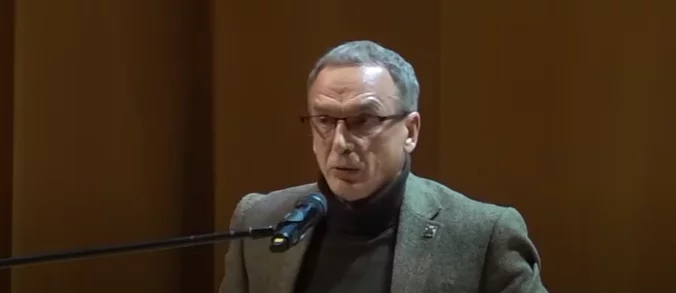Russia’s Ideology Is Now National Liberation of the World From the US Empire, With an Assist From Patriarch Kirill
Yves here. John Helmer does the important service of summarizing and discussing the implications of the increasingly overtly ideological themes in Putin’s speeches, and his criticism of US policies of hegemony, conflict-fomenting, and touting its self-serving “rules-based order” as contrasted with multipolarity. Note the latter can and per Putin does imply stronger nation states and cultural identities. Putin has also taken to touting Russia’s multi-ethnicity and (without using these words) arguing that it is subsumed under a national identity without the loss of cultural identity, while “wokeness” sharpens divisions….which is a feature, not a bug.
Helmer also sets forth some internal contradictions in Putin’s views, as well as his consistency of application, particularly with respect to terrorism and the conflict in Gaza.
By John Helmer, the longest continuously serving foreign correspondent in Russia, and the only western journalist to direct his own bureau independent of single national or commercial ties. Helmer has also been a professor of political science, and an advisor to government heads in Greece, the United States, and Asia. He is the first and only member of a US presidential administration (Jimmy Carter) to establish himself in Russia. Originally published at Dances with Bears

Between 1917 and right now in Russian history, it has been clear that the horse pulls the cart. That’s to say, the ideas people have, or the ideology of groups and the propaganda of media, churches, and governments are pulled along by their economic interests, by the class structure of the underlying society.
Not the horse in the picture. That’s the icon image, popularised in the Georgian Orthodox Church from the 11th century, depicting St. George, patron saint of believers, spearing to death the Roman emperor Diocletian. Actually, Diocletian ruled the Roman empire from 284 until 305 AD, when he became the first emperor to resign voluntarily and retire harmlessly. Before that Diocletian, a professional soldier, did a lot of spearing of Gauls, Balkan tribesmen, and Persians, as well as Christians in Syria, before he decided to rusticate in his garden on the Adriatic.
The icon doesn’t represent what really happened. Long after Diocletian was forgotten, the icon has come to represent the victory of Orthodoxy over the anti-Christian empire. The icon image was mentioned last week by Andrei Ilnitsky, an advisor to the Russian Defense Ministry and lead ideologist for the United Russia party, in a speech to the Patriarch and President Vladimir Putin. According to Ilnitsky, St George represents Russia, and the spearing of Diocletian represents what Russia is doing to the US empire on the Ukrainian battlefield.
Now — most precisely at the World Russian People’s Council meeting in Moscow on November 28 — Ilnitsky, the Patriarch, and Putin are reversing the order of history. It’s now the cart of Russian ideology pulling the horse of Russian forces into battle with the Americans.
“They are fighting with us,” declared Ilnitsky, “for the way people think, for the way they perceive the world. Right now we are fighting a civilisational war for the future. It is this war that we are waging on the battlefields of our own. We will win and revive ourselves by being reborn, or our identity will be wiped out. This is exactly what happened in the Ukraine for thirty years before the start of the SVO [Special Military Operation].”
Putin went further than spearing the emperor. “Our fight”, he declared, “for sovereignty and justice is, without exaggeration, one of national liberation, because we are upholding the security and well-being of our people, and our supreme historical right to be Russia – a strong independent power, a civilization state. It is our country, it is the Russian world that has blocked the way of those who aspired to world domination and exceptionalism, as it has happened many times in history. We are now fighting not just for Russia’s freedom but for the freedom of the whole world.”
This is the first time Putin has identified the doctrine of national liberation in ideological, economic, and in battlefield war against the US doctrine of hegemony and exceptionalism.
“We can frankly say that the dictatorship of one hegemon is becoming decrepit. We see it, and everyone sees it now. It is getting out of control and is simply dangerous for others. This is now clear to the global majority. But again, it is our country that is now at the forefront of building a fairer world order. And I would like to stress this: without a sovereign and strong Russia, no lasting and stable international system is possible.”
During the World Russian People’s Council, Ilnitsky said the threats of the US empire are emanating from three directions of US strikes on the country and the people. “I will not talk about purely military aspects, but about how we do not lose the world. This is what is called ideology. A month ago, the US national security strategy was adopted. The Americans position themselves as the global hegemon. The so-called autocracies have been declared enemy number one; in fact, they are the nation states which are pursuing a sovereign policy. Russia is mentioned in this document 69 times! Even more often than China. And Ukraine is cited only as anti-Russia. Russia is the civilisational opponent of the West. Without the elimination of Russia, the development of the Western world is impossible. It will not be possible to normalise relations because of the deepest difference in goals and values.”
“At the same time,” Ilnitsky went on, “violence has become the defining concept of Western politics. War is a component of such a world of violence. How are they going to implement this violence? Everything is said in the US national defence strategy. They confront us on land, in the air, at sea, in space. And also in the information sphere. But now they are striving for informational and cognitive dominance. The US Joint Chiefs of Staff identified three areas of their attack: technological warfare (including artificial intelligence); the war in the city; the transition from informational to cognitive-mental dominance. Psychological operations will be enhanced as much as possible. This is no joke. This is the same mental war where the destruction of the enemies’ self-consciousness is the goal,” Ilnitsky emphasised.

Andrei Ilnitsky speaking to the World Russian People's Council in Moscow on November 27. Source: https://www.youtube.com/watch?v=rTbHrAS0EyY
No comments:
Post a Comment